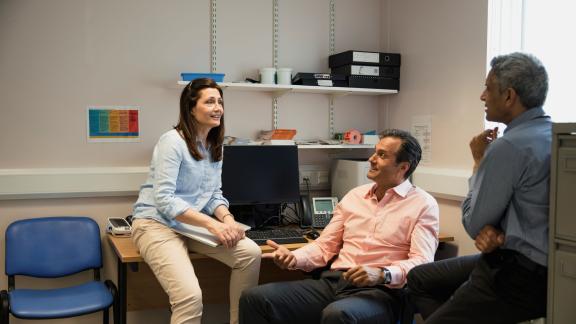Genuine commitment to primary care at scale

Foundry Healthcare Lewes Primary Care
Foundry Healthcare Lewes Primary Care Network is a single GP practice and PCN that formed following the merger of three GP practices in 2019. The goal of the merger was to build a more resilient model of primary care based on population health management (PHM) principles, including segmenting the registered patient population and re-engineering a multi-disciplinary and integrated team to create a needs-led model of primary care. In order to deliver on this goal, Foundry implemented a five-year transformation project.
Key elements of the transformation programme included working at scale across three practices (which eventually led to the practice merger); the development of a green hub integrated within an urgent treatment centre for managing on-the-day demand; a PHM approach to managing capacity and demand by patient segmentation; building a multi-disciplinary professional team; and the development of an in-house demand and capacity modelling tool, Tempo, to manage flow and access for patients.
The decision to merge the practices was due in part to the recognition that an organisation operating at a larger scale can pool resources and build integrated teams that deliver high-quality care across a larger patient population. Prior to forming a PCN, the practices that make up Foundry had participated in the Primary Care Home programme and learned the benefit of providing services across a larger footprint. Continuing to operate solely at practice level can lead to wasted resources in duplication and potential inequalities in care and access, while operating at scale has enabled greater sharing and collaboration with larger system partners who struggle to work with individual practices. The merger also provide the opportunity to reorganise the workforce to better align with clinical priorities and better serve their population’s needs, via continuing care teams and the green hub. The establishment of the urgent treatment care service (UTC) is a further illustration of working at scale to build teams across organisational boundaries that provide enhanced services and improve system resilience.
By taking an access and population health management approach to improvement, Foundry has identified crucial interdependencies between demand and capacity. The PCN used population segmentation alongside its capacity planning tool, Tempo, to identify patients’ needs and to design a model to meet this demand. The team identified patients with health issues requiring greater continuity based on need and classified those patients as ‘red’ (high need), ‘amber’ or ‘green’ (low need). This modelling means that the PCN knows where high-demand patients are, and can direct them to the best practitioners for their needs, in addition to allotting staff and resources to the areas with higher numbers of ‘red’ patients. This PHM, data-centric approach has generated improvements to access for the urgent needs of ‘green’ patients and for high-priority ‘red’ and ‘amber’ patients. Despite this, aggregated measures, such as the percentage of appointments booked on the day, have remained stable and broadly similar to the regional and national averages.
This transformation project presented a practical approach for delivering integrated services, using population health management and a dynamic workforce model to provide timely, appropriate and personalised care. Foundry staff reported the interventions had positively impacted the provision of care, noting the impact on patients (through improved triaging) and on staff (upskilling and broadening of responsibilities). Similarly, patients at the Foundry reported a higher satisfaction regarding several aspects of care, such as confidence in the healthcare team and the care received. However, patient insights highlighted some difficulties accessing care, which is an area the Foundry continues to focus on.



